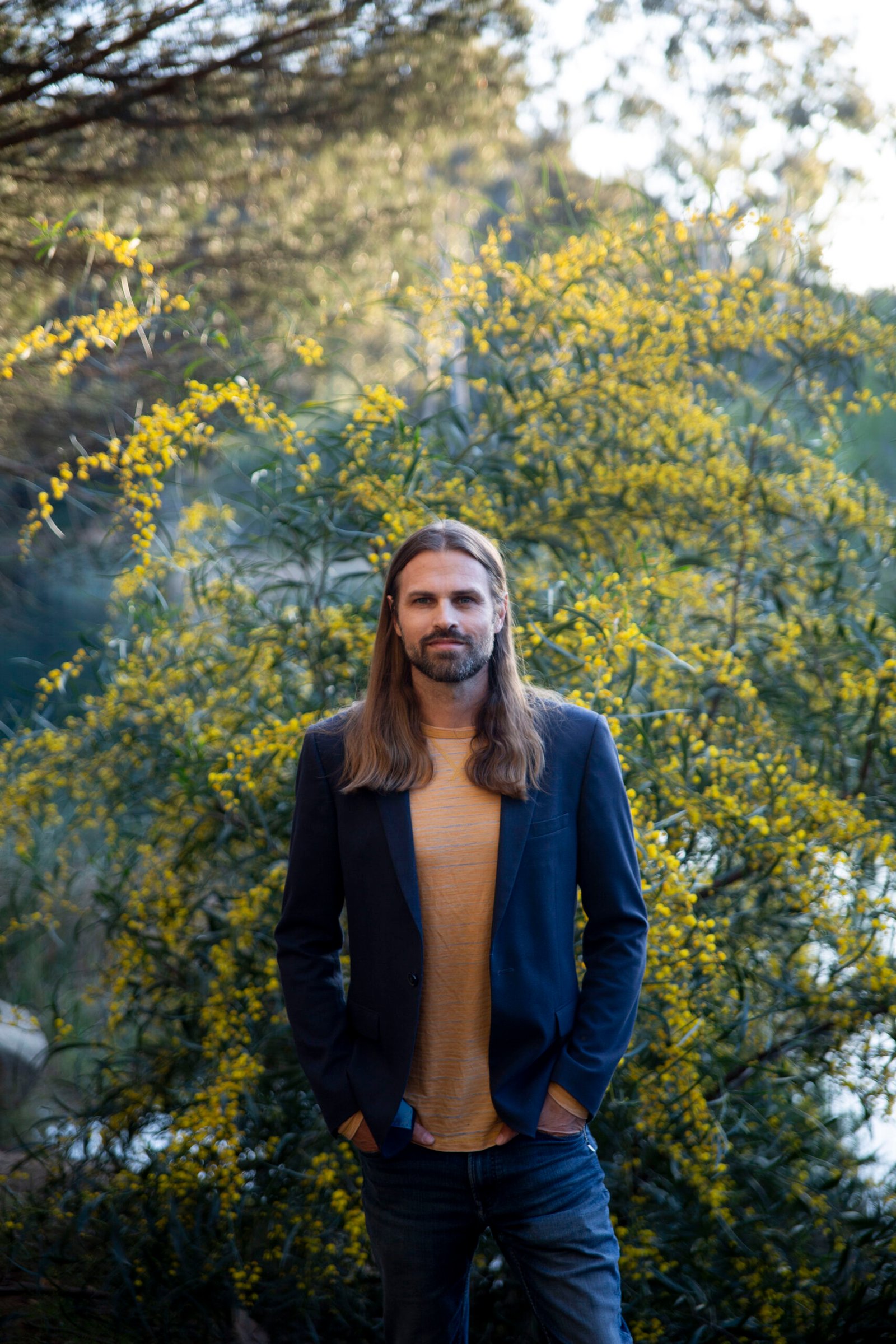In a world that moves fast and encourages numbing over feeling, wilderness therapy offers something radically different—stillness, challenge, presence, and truth. For adult men battling drug addiction, it can be a powerful way to press pause, reset, and reimagine life in recovery.

How To Help That Son, Father or Brother In Your Life Who Refuses To Get Help For His Addiction
One of the hardest things a person can go through is watching someone you love spiral into drug addiction. But it’s even more difficult if they simply refuse to seek help.
You’ve tried talking, reasoning, pleading—but nothing seems to break through. The denial is strong. The excuses are endless. The damage keeps getting worse. If there’s a man in your life—maybe a son, brother, partner, or friend—who is deep in addiction and won’t accept treatment, you are not alone.
Maybe what they need is a specialized men’s addiction treatment program. Sacred Journey Recovery is a men-only addiction treatment center dedicated to providing compassionate, holistic care. We offer an adventure-based approach through wilderness therapy, which integrates evidence-based treatment with the restorative power of nature.
Sacred Journey Recovery guides men through the transformative process of overcoming substance abuse and co-occurring disorders, offering a safe, structured environment where clients can heal emotionally, mentally, spiritually, and physically. Here, we will guide you through real-world strategies, emotional survival tips, and why wilderness therapy can be a lifeline for men who are resistant to traditional treatment.
Why Addicts Refuse Help
Even though the situation may seem hopeless, there are steps you can take to bring your loved one closer to treatment. For example, Sacred Journey Recovery can help men openly address gender-specific challenges in a supportive, brotherhood-like atmosphere that encourages honesty, accountability, and long-term growth.
But before we dive into the specific things you can do, it’s important to understand why a man might be refusing help in the first place.
Denial is Powerful
One of the biggest obstacles to seeking help is denial. Many people suffering from substance use disorders (SUDs) convince themselves they don’t have a problem or believe they can stop anytime they want. But this self-deception only keeps them trapped in the cycle of addiction. To them, the thought of having to face the consequences of their behavior or go through the process of rehab could be overwhelming.
While denial serves as a mental barrier, it also keeps them stuck. Overcoming this is an important step in recovery.
Fear of Withdrawal
Withdrawal symptoms can be painful, frightening, and even dangerous depending on the substance involved. Despite their tough exterior, a lot of men fear the severe physical and emotional discomfort that drug withdrawal may cause. Even when they know they need help, the anticipation of withdrawal can be paralyzing.
Shame and Guilt
Addiction doesn’t just affect the individual—it also impacts the people around them. In fact, it often leads to broken trust, damaged relationships, and personal failures. Many addicted men feel intense shame and guilt over their behavior, which can make them feel unworthy of help. Instead of seeing recovery as a path towards redemption, they may isolate and avoid support to escape the weight of their emotions.
Pressure to “Handle It Alone”
Men in particular may struggle with cultural and internalized beliefs that they need to be strong, independent, and self-reliant. For them, asking for help can feel like a weakness. This pressure to appear in control prevents many from admitting they have a problem, let alone seeking treatment from others.
Negative Past Experiences with Rehab
If someone has been to treatment before and it didn’t work—or if they felt judged, mistreated, or unsupported—they may be hesitant to try again. A negative experience can make men distrust the system altogether, believing that help doesn’t work for “people like them”.
To rebuild this trust, it takes patience, hard work, and the right treatment approach.

How to Deal with an Addict Who Won't Get Help?
The hard truth is that you can’t force someone to recover, even if it’s someone you deeply care about. They need to want it for themselves or else sobriety won’t stick.
While this can be frustrating and heartbreaking, there are some steps you can take to change how you respond to the situation, set limits to protect yourself, and create an environment that encourages recovery.
Step 1: Get Clear on What You Can—and Can’t—Control
It’s easy to lose yourself trying to fix someone else’s addiction, but the first step is recognizing that you are not in control of their choices. You can’t make them stop using, go to treatment, or change their behavior.
Instead, you need to focus your time and energy on managing your boundaries and making decisions for your own well-being. Accepting this truth doesn’t mean giving up on them; it means freeing yourself from the illusion that you can save them without their cooperation.
Step 2: Set Loving but Firm Boundaries
One thing to remember about boundaries is that they are not punishments—they are protection. When someone you care about is addicted to drugs, it’s essential to draw a line between helping and self-sacrificing.
This might mean not allowing drug use in your home, refusing to give money, or distancing yourself when their behavior becomes harmful. Boundaries let your loved one know that you care, but you also respect yourself too much to be dragged down by their addiction.
Step 3: Stop Enabling
Doing things like covering for them, bailing them out, or excusing their behavior is not love—it’s enabling. Enabling them only keeps them stuck and unable to make any real progress towards sobriety.
When you stop enabling, you allow them to experience the consequences of their actions, which can sometimes be the push they need to realize they need help. It’s one of the hardest things to do, but also one of the most important steps toward change.
Step 4: Communicate in a Way They Can Hear
When emotions run high, conversations can quickly turn into arguments. Try to approach them with calmness, empathy, and honesty. Instead of blaming them for their actions, focus on how their behavior is impacting you. Use “I” statements to avoid putting them on the defensive. Your goal isn’t to lecture or shame—it’s to plant a seed of awareness that they are loved and that help is available when they’re ready.
Step 5: Offer Specific, Actionable Help
Instead of vague suggestions like “you need to get help,” it’s better to offer concrete options. Do your research on nearby rehab centers and offer to give them the support they need, whether it’s to drive them to the facility or help with the paperwork. Make it easy for them to say yes when they’re ready. Even if they’re not ready today, knowing that you have a plan ready can make all the difference when that moment of willingness finally comes.
Step 6: Explore Intervention as a Last Resort
In some cases, especially when addiction is life-threatening, an intervention may be necessary. But what you need to remember is that this is not like the TV shows. A real intervention is usually organized by a professional who can help the family prepare both logistically and emotionally.
Intervention is not about ambushing the person: it’s about creating a moment of clarity. This needs to be done properly or else it may backfire. It’s recommended that you work with someone experienced if you go this route.
Recovery Often Starts in Nature
Whether a man has already tried traditional rehab and didn’t make progress or they’ve never even been to rehab before, wilderness therapy is a powerful option that eliminates the “clinical” feeling that may intimidate some people.
Wilderness therapy is an experiential approach that offers a different kind of healing, allowing men to learn from their experiences while facing the challenges of nature. Sacred Journey Recovery’s adventure-based treatment model combines physical challenge, clinical therapy, and deep personal reflection in an environment that feels more real than any sterile treatment center.
It’s not just about getting sober: it’s about rediscovering purpose, resilience, and identity. Here are some reasons why wilderness therapy works well for men:
Physical Challenge Builds Confidence
Whether it’s hiking through rugged terrain, building a shelter, climbing a rock wall, or conquering a ropes course, the physical demands of wilderness therapy push men beyond what they thought possible. Conquering these challenges reminds men of their inner strength, rebuilding the confidence that they have lost due to the destruction of addiction.
Sacred Journey Recovery pushes men out of their comfort zones, fostering a sense of accomplishment and self-worth that substances have long eroded. When a man sees that he can tackle real challenges in the wild, he begins to believe he can tackle recovery too.
Here, you won’t just be talking about coping mechanisms. You will learn them and apply them in real time while we provide the support you need to grow and realize your strength. By teaching through experiences, we provide the framework for the teaching to be felt and understood at a deeper level. This way, we turbocharge what can bee achieved in the short time spent in treatment.
At Sacred Journey Recovery, we provide men with the tools to recover and an experience that will change them forever.
Brotherhood Replaces Isolation
Addiction thrives in secrecy. The pressure to be “tough” often pushes men to just deal with their problems on their own, but recovery happens in community—not in isolation.
Here at Sacred Journey Recovery, we prioritize brotherhood building. In wilderness therapy, men form tight-knit groups where vulnerability is not only accepted—it’s encouraged. Facing the challenges of nature together can open up difficult conversations organically. Even uncomfortable discussions that may feel awkward to talk about in a clinical setting or in a mixed-gender environment can be had in a men-only wilderness treatment center.
Shared experiences build bonds of trust and long-lasting brotherhood that can be more healing than any single therapy session. These connections often last beyond the program, offering long-term support and accountability.
Integrated Therapy
Wilderness therapy isn’t just camping—it’s a clinical model. Licensed therapists guide participants through individual counseling, group therapy, and evidence-based practices like CBT and motivational interviewing.
Sacred Journey Recovery recognizes that conquering addiction goes beyond simply stopping substance use. That’s why our comprehensive programs blend clinical expertise with holistic and spiritual elements, as well as peer and professional support.
We offer residential care, partial hospitalization programs, intensive outpatient programs, outpatient services, aftercare services, and relapse prevention. The combination of professional support and natural surroundings leads to deep, lasting breakthroughs. It is especially beneficial for those who’ve struggled in more conventional settings.

Choose Sacred Journey Recovery
Sacred Journey Recovery understands that every individual’s story is unique. We reflect this with our flexible treatment plans that allow for the creation of a truly personalized path to healing. We pair professional expertise with genuine empathy, ensuring that men not only conquer the immediate challenges of addiction but also cultivate resilience and life skills for the future.
At Sacred Journey Recovery, we guide men to overcome addiction by combining physical challenges, trauma-informed care, and a brotherhood of accountability, creating a foundation for lasting transformation.
For more information on our services and admissions process, visit:
sacredjourneyrecovery.com/our-services.
We empower men to break free from addiction and build a life of strength, purpose, and lasting sobriety through adventure-based treatment and holistic healing.
Start a new chapter of your life, today.






